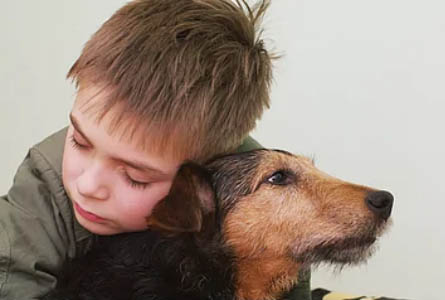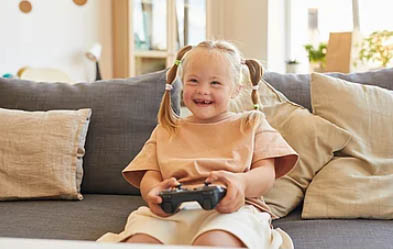As an ABA therapist, it’s important to prioritize ongoing professional development in order to stay up-to-date on the latest research and best practices in the field. One great way to do this is by attending conferences and workshops.
In 2022, there are many professional development opportunities available for ABA therapists. Here are a few conferences and workshops to consider:
1. The Association for Behavior Analysis International (ABAI) Annual Convention: This is the largest conference for behavior analysts, and it offers a wide range of sessions and workshops on topics such as ABA theory, research, and practice.
The Association for Behavior Analysis International (ABAI) Annual Convention is a major event in the field of behavior analysis. It brings together professionals, researchers, students, and educators from around the world to share the latest research and developments in the field.
The ABAI Annual Convention is typically held in the spring and attracts thousands of attendees. It features a wide range of presentations, workshops, and panel discussions on a variety of topics related to behavior analysis. These may include applied behavior analysis (ABA), behavioral psychology, developmental disabilities, and autism.
In addition to the educational sessions, the ABAI Annual Convention also includes networking opportunities, such as poster presentations and social events. It is a great opportunity for attendees to connect with others in the field, share ideas, and collaborate on future projects.
The ABAI Annual Convention is a valuable resource for professionals and students interested in staying up-to-date on the latest research and developments in behavior analysis. It is also a great opportunity for attendees to learn from leading experts in the field and gain new insights and perspectives on a variety of topics.
Overall, the ABAI Annual Convention is an essential event for anyone interested in behavior analysis and the latest research in the field. It is a great opportunity to learn, connect with others, and stay current on the latest developments in the field.
2. The National Autism Conference: This conference is specifically geared towards professionals working with individuals with autism, and it offers a variety of sessions on topics such as assessment, intervention, and research.
The National Autism Conference is an annual event that brings together professionals, parents, and individuals with autism to share the latest research and developments in the field of autism. The conference is typically held in the fall and attracts attendees from across the United States.
The National Autism Conference features a wide range of presentations and workshops on a variety of topics related to autism. These may include applied behavior analysis (ABA), developmental disabilities, communication, and social skills training. The conference also often includes panel discussions, networking opportunities, and resources for individuals with autism and their families.
In addition to the educational sessions, the National Autism Conference also includes keynote speakers who are leading experts in the field of autism. These speakers provide valuable insights and perspectives on a variety of topics related to autism and offer attendees the opportunity to learn from the best in the field.
The National Autism Conference is a valuable resource for professionals and families interested in staying up-to-date on the latest research and developments in the field of autism. It is also a great opportunity for attendees to connect with others, share ideas, and learn from the experiences of others.
Overall, the National Autism Conference is an essential event for anyone interested in autism and the latest research and developments in the field. It is a great opportunity to learn, connect with others, and stay current on the latest developments in the field.
3. The Verbal Behavior Institute (VBI) Summer Institute: This intensive workshop is designed for ABA therapists and educators who are interested in learning more about the principles of verbal behavior and how to apply them in their practice.
The Verbal Behavior Institute (VBI) Summer Institute is an annual event that brings together professionals and students interested in the field of verbal behavior. The institute is typically held in the summer and attracts attendees from across the United States.
The VBI Summer Institute features a wide range of presentations and workshops on a variety of topics related to verbal behavior. These may include applied behavior analysis (ABA), language development, and autism. The institute also often includes panel discussions, networking opportunities, and resources for professionals and students interested in verbal behavior.
In addition to the educational sessions, the VBI Summer Institute also includes keynote speakers who are leading experts in the field of verbal behavior. These speakers provide valuable insights and perspectives on a variety of topics related to verbal behavior and offer attendees the opportunity to learn from the best in the field.
The VBI Summer Institute is a valuable resource for professionals and students interested in staying up-to-date on the latest research and developments in the field of verbal behavior. It is also a great opportunity for attendees to connect with others, share ideas, and learn from the experiences of others.
Overall, the VBI Summer Institute is an essential event for anyone interested in verbal behavior and the latest research and developments in the field. It is a great opportunity to learn, connect with others, and stay current on the latest developments in the field.
4. The Autism Research Institute (ARI) Annual Conference: This conference is focused on the latest research and best practices in autism treatment, and it offers a variety of sessions and workshops for professionals working with individuals with autism.
The Autism Research Institute (ARI) Annual Conference is an annual event that brings together professionals, parents, and individuals with autism to share the latest research and developments in the field of autism. The conference is typically held in the fall and attracts attendees from across the United States.
The ARI Annual Conference features a wide range of presentations and workshops on a variety of topics related to autism. These may include applied behavior analysis (ABA), developmental disabilities, communication, and social skills training. The conference also often includes panel discussions, networking opportunities, and resources for individuals with autism and their families.
In addition to the educational sessions, the ARI Annual Conference also includes keynote speakers who are leading experts in the field of autism. These speakers provide valuable insights and perspectives on a variety of topics related to autism and offer attendees the opportunity to learn from the best in the field.
The ARI Annual Conference is a valuable resource for professionals and families interested in staying up-to-date on the latest research and developments in the field of autism. It is also a great opportunity for attendees to connect with others, share ideas, and learn from the experiences of others.
Overall, the ARI Annual Conference is an essential event for anyone interested in autism and the latest research and developments in the field. It is a great opportunity to learn, connect with others, and stay current on the latest developments in the field.
By attending conferences and workshops, ABA therapists can learn from experts in the field, network with colleagues, and gain new skills and knowledge to bring back to their practice. So, make sure to take advantage of these professional development opportunities in 2022!








